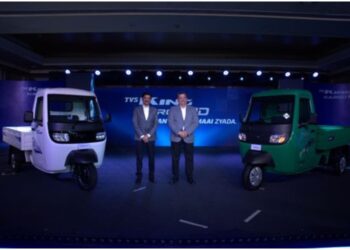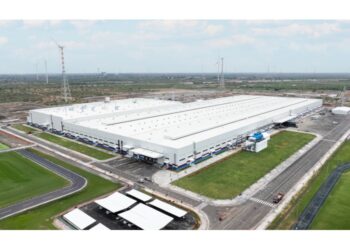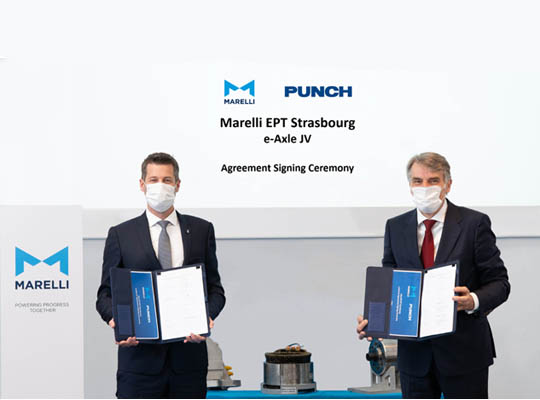EL SEGUNDO – A small start-up with big ambitions is making a serious splash in the truck transport world by building the nation’s first 25-megawatt, solar-powered, electric-only public truck stop to serve electric truck transport between California’s fast-growing Central Valley and Southern California’s bustling ports and shipping hubs.
WattEV, founded by an experienced team of telecommunications and satellite engineers, aims to revolutionize the heavy-duty trucking industry by solving the classic chicken-egg problem: Which comes first, electric trucks or charging infrastructure?
Their solution: Do both at once.
WattEV is building a pilot electric truck stop at a heavily truck-trafficked highway intersection in Bakersfield, located at the southern end of California’s expansive San Joaquin Valley. The 110-acre truck stop, positioned near logistics fulfillment centers run by Amazon and Walmart, will feature a solar micro-grid with battery storage, plus grid energy from PG&E.
Partners in the project include the San Joaquin Valley Air Pollution Control District, Greenlots, Power Electronics, the Central California Asthma Collaborative, heavy-duty truck makers, PG&E and others. Initial output from the WattEV electric truck stop will include 4-megawatt (MW) capability, eventually growing to 25-MW feeding more than 40 charging bays.
To solve the other side of the issue, WattEV has developed a novel business model for the truck transport industry, labeled Trucks as a Service (TaaS), that opens the transition path for transporters to use battery-electric trucks.
“We aim to enable the addition of 12,000 heavy-duty battery electric trucks to the roads in California by the end of 2030, exceeding existing forecasts,” says WattEV CEO Salim Youssefzadeh. “If it works in California, it’ll work just about anywhere in the country.”
WattEV, whose core business started by developing the novel charging infrastructure, has already reserved its first 50 Tesla Semis and plans to place more orders with other OEMs. WattEV expects this new approach to goods movement in the nation’s most populous state to accelerate the adoption of electric trucks in California and the rest of the country.
“Focusing on the revenue and profit potential of an electric truck, rather than the fixed and variable cost of owning a new or used diesel truck, is how we can get more drivers into more electric trucks more quickly. Waiting for the market to mature organically – at the rate it’s currently going – could take more than a decade. Our aim is to fast-track the transition to electric truck transport by doing things a little differently,” adds Youssefzadeh.
WattEV’s innovative TaaS business model generates initial demand for charging by offering a solution to transporters that is financially viable while enabling shippers to meet their sustainability goals.
“WattEV is speeding up the transition of California’s truck transport into zero emission vehicles faster than anyone could expect,” Youssefzadeh says. “We use a combination of business and technology innovation to create infrastructure and data-driven workflow that provide truckers and fleet operators a solution to meet their profitability goals while contributing to clean-air initiatives and carbon-reduction goals.”
WattEV is led by electrical engineers and entrepreneurs with decades of experience building hundreds of millions of dollars in communications networks and commercial buildings. The combined team brings together solar, battery storage, charging hardware, software, network management, finance, community building, fleet outreach and project development expertise.













